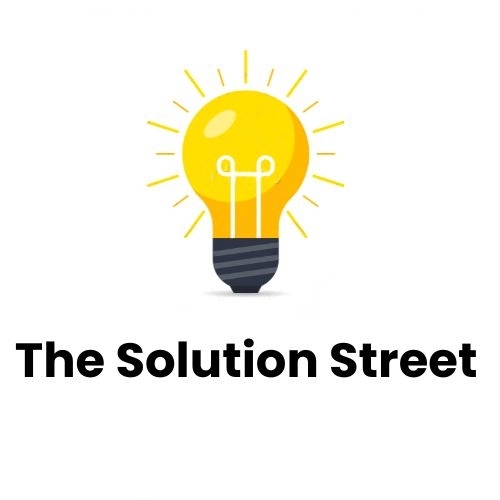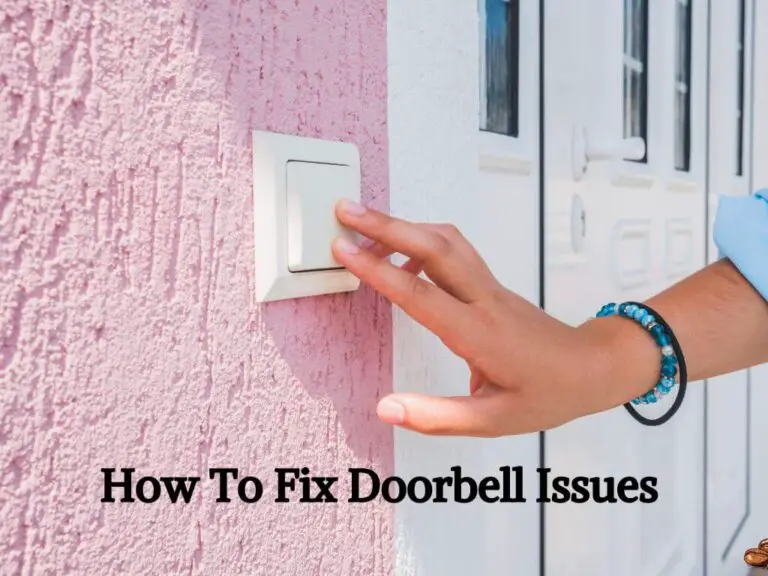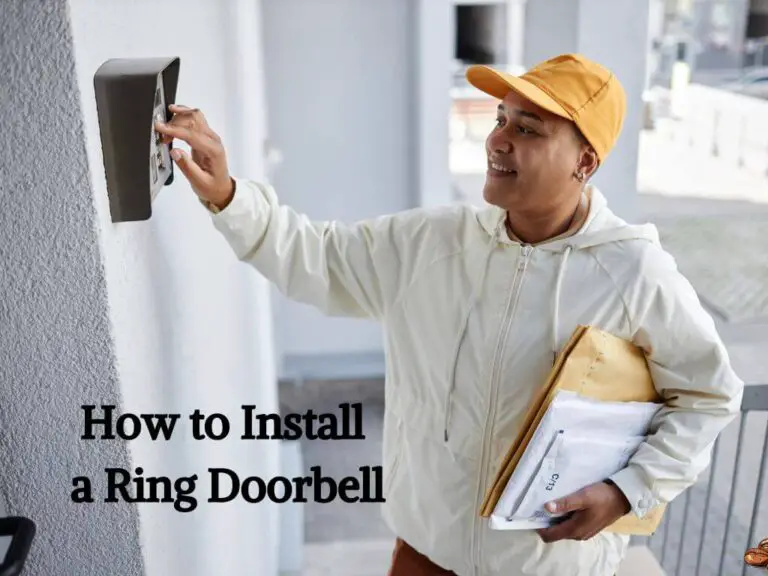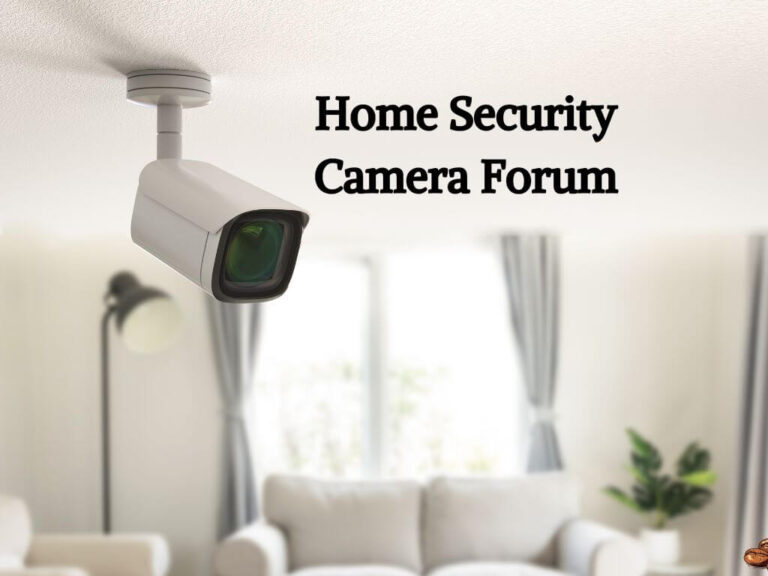Welcome to the future of home living! Smart home technology is not just a passing trend; it has become a staple in modern households, revolutionizing the way we live, work, and interact with our homes. At its core, smart home technology refers to devices and systems that connect to the internet, allowing homeowners to control and monitor their home environments from anywhere. This innovation offers a wealth of benefits that go beyond mere convenience, enhancing energy efficiency, security, and overall quality of life.
As we dive into this exciting topic, we’ll explore the myriad advantages of smart home technology, from automating daily tasks to creating safer living spaces. Whether you’re a tech enthusiast or just curious about how these advancements can simplify your life, this article will provide valuable insights into why you might want to consider incorporating smart technology into your home. So, let’s unlock the potential of smart living together!

Understanding Smart Home Technology
To fully appreciate the benefits of smart home technology, it’s essential to understand what it encompasses. Smart home technology is essentially a network of devices that communicate with each other through the Internet of Things (IoT). This network allows homeowners to control and automate various aspects of their homes from a centralized device, typically a smartphone or tablet.
Definition of Smart Home Technology
Smart home technology refers to the integration of various devices and appliances that can be controlled remotely and can communicate with each other. These devices range from simple smart bulbs to complex home security systems. By leveraging IoT technology, smart homes enable seamless interactions and automation, creating a more efficient and comfortable living environment.
Key Components
Several key components make up the backbone of smart home technology:
- Smart Devices: These include a wide range of products such as smart thermostats, smart speakers, security cameras, doorbell cameras, and smart lighting systems. Each device can be controlled remotely and may interact with other devices.
- IoT (Internet of Things): This refers to the network of interconnected devices that communicate and share data. IoT is what makes it possible for your smart thermostat to adjust based on your habits or for your security camera to send alerts to your phone.
- Voice Assistants: Smart speakers equipped with voice assistants like Amazon Alexa, Google Assistant, or Apple Siri enable hands-free control of your smart devices. With simple voice commands, you can adjust settings, check your home’s status, or control your entertainment systems.
Examples of Popular Smart Home Devices
Here are some popular smart home devices that you might consider integrating into your living space:
| Device Type | Examples | Benefits |
|---|---|---|
| Smart Thermostats | Nest, Ecobee | Optimize heating/cooling for energy savings |
| Smart Security Cameras | Ring, Arlo | Real-time monitoring and alerts for safety |
| Smart Lights | Philips Hue, LIFX | Adjustable lighting for ambiance and efficiency |
| Smart Plugs | TP-Link Kasa, Wemo | Control appliances remotely to save energy |
| Smart Locks | August, Schlage | Enhanced security with keyless entry |
By understanding the fundamental elements of smart home technology, you can begin to see how they interconnect to create a seamless, automated living experience. In the following sections, we will explore the specific benefits these technologies bring to our homes and lives.
Enhanced Convenience
One of the most compelling benefits of smart home technology is the unparalleled convenience it brings to everyday life. With smart devices, you can automate daily tasks and gain control over your home environment with just a few taps on your smartphone or simple voice commands. Let’s delve into how smart technology enhances convenience in two key ways: automation of daily tasks and remote control.
Automation of Daily Tasks
Imagine waking up in the morning and having your coffee brewing automatically, the lights gradually brightening to simulate a sunrise, and your thermostat adjusting to a comfortable temperature—all before you even get out of bed. Smart home technology makes this scenario a reality through automation.
- Smart Appliances: From smart coffee makers to robotic vacuum cleaners, various appliances can be programmed to operate at specific times. For instance, a smart oven can preheat while you’re on your way home from work, ensuring that your meal is ready when you arrive.
- Examples of Automation: Smart thermostats can learn your schedule and adjust the temperature accordingly, while smart lighting systems can be set to turn on or off at designated times, creating a secure and welcoming atmosphere.
Remote Control
The ability to control your home from anywhere is a game-changer. With smart home technology, managing devices is as simple as using your smartphone or tablet, which is particularly useful for those with busy lifestyles.
- Managing Devices Remotely: Whether you’re at work, on vacation, or simply out for the day, you can check on your home’s status and control devices from anywhere. For example, if you forget to turn off the lights before leaving, you can do so with a quick tap on your phone.
- Accessibility While Away from Home: Remote control features not only provide convenience but also enhance security. You can monitor security cameras in real time, receive alerts about unusual activity, and even unlock doors for guests or service personnel without being home.
From automating mundane tasks to controlling devices remotely, smart homes make life more enjoyable and efficient.
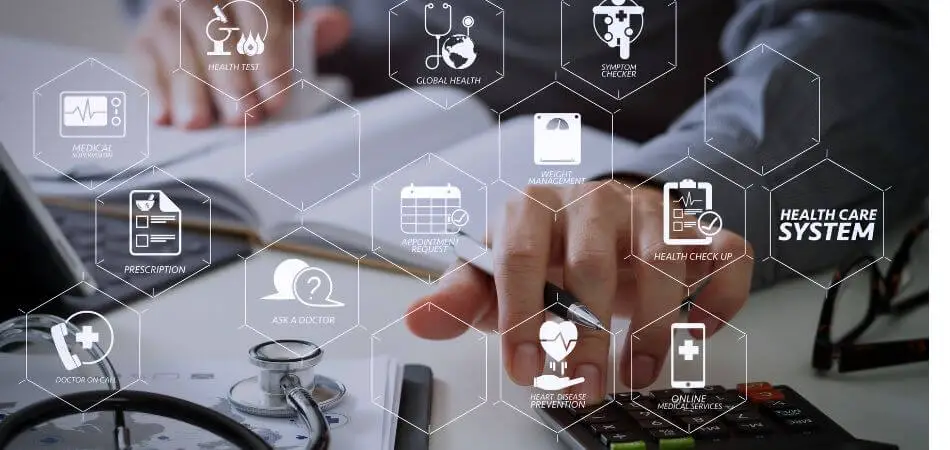
Increased Energy Efficiency
Another significant benefit of smart home technology is its ability to enhance energy efficiency, which not only leads to cost savings but also contributes to a more sustainable environment. Smart devices help monitor energy usage and optimize heating and cooling, making your home more energy-efficient. Let’s explore these benefits in detail.
Energy Monitoring and Savings
With smart technology, homeowners can track their energy consumption in real-time. This capability allows you to identify energy-hungry devices and adjust usage accordingly, ultimately leading to substantial savings on your utility bills.
- Smart Meters: These devices provide detailed insights into your energy usage patterns. You can see which appliances consume the most energy and when peak usage occurs, enabling you to make informed decisions about your consumption habits.
- Examples of Energy-Efficient Devices: Smart plugs and energy-efficient light bulbs automatically turn off when not in use, reducing energy waste. Additionally, smart power strips can prevent phantom energy use by cutting power to devices that go into standby mode.
Optimization of Home Heating and Cooling
Heating and cooling systems are among the largest contributors to energy consumption in a household. Smart home technology allows you to optimize these systems for maximum efficiency.
- Smart Thermostats: Devices like Nest or Ecobee can learn your daily habits and adjust the temperature accordingly. For instance, they can lower the temperature when you’re away and raise it just before you return home, ensuring comfort while minimizing energy usage.
- Benefits to Both the Environment and Utility Bills: By optimizing your heating and cooling, smart thermostats not only help reduce your monthly energy bills but also lower your carbon footprint. This dual benefit supports both your wallet and the planet.
By utilizing smart devices to monitor and optimize energy consumption, homeowners can enjoy a comfortable living space while being mindful of their environmental impact.
Enhanced Security and Safety
The safety and security of our homes and loved ones are paramount, and smart home technology offers innovative solutions to enhance both. With various devices designed to monitor and protect your home, you can enjoy peace of mind knowing that your environment is secure. Let’s take a closer look at how smart technology improves home security and safety features.
Smart Security Systems
Smart security systems incorporate a range of devices that work together to provide comprehensive surveillance and monitoring capabilities.
- Overview of Smart Cameras, Doorbells, and Locks: Modern smart security solutions include high-definition cameras that can be accessed remotely, video doorbells that allow you to see and speak to visitors from anywhere, and smart locks that offer keyless entry options. These devices not only provide real-time visuals of your property but also allow you to monitor who enters and exits your home.
- Real-Time Monitoring and Alerts: Many smart security systems send real-time notifications to your smartphone if they detect unusual activity. For example, if someone approaches your door, you’ll receive an alert and can view the live feed from your doorbell camera. This immediate feedback empowers you to respond quickly to potential threats, enhancing your home’s security.
Home Safety Features
Beyond security, smart technology also enhances safety within the home.
- Smoke and Carbon Monoxide Detectors: Smart detectors can alert you to smoke or carbon monoxide even when you’re not home. These devices can send notifications directly to your smartphone, ensuring you are informed of any dangers, no matter where you are.
- Emergency Alerts and Integration with Local Authorities: Some smart security systems can connect directly to local emergency services, automatically alerting them in case of a break-in or fire. This integration can significantly reduce response times, providing an extra layer of security for your home.
By incorporating smart security devices into your home, you can enjoy greater peace of mind, knowing that your home and family are well-protected.

Improved Home Management
Smart home technology is not only about convenience and security; it also plays a crucial role in streamlining home management. With the help of smart devices, managing household tasks becomes more efficient, allowing you to save time and reduce stress. In this section, we will explore how smart assistants and voice control, along with monitoring and maintenance features, contribute to better home management.
Smart Assistants and Voice Control
One of the most significant advancements in smart home technology is the integration of voice assistants. These intelligent systems enable you to control your smart devices through simple voice commands, making home management effortless.
- How Voice-Activated Systems Streamline Home Management: Smart assistants like Amazon Alexa, Google Assistant, and Apple Siri can control a variety of devices, from lights to thermostats, all through voice recognition. You can set reminders, play music, check the weather, or ask questions without lifting a finger. This hands-free capability is particularly beneficial when your hands are full or if you’re busy with other tasks.
- Integration with Various Smart Devices: Voice assistants can connect with multiple smart devices, creating a cohesive ecosystem in your home. For example, you can say, “Good night,” and your assistant will turn off the lights, lock the doors, and adjust the thermostat—all in one command.
Monitoring and Maintenance
Smart home technology also helps homeowners stay organized and on top of their household responsibilities.
- Keeping Track of Household Tasks and Schedules: Many smart home systems come with apps that allow you to manage tasks and schedules easily. You can create lists, set reminders for important tasks, and monitor household routines. This functionality is especially useful for busy families who juggle multiple schedules.
- Predictive Maintenance Alerts for Appliances: Smart appliances can notify you when they require maintenance or when it’s time to replace filters, such as in refrigerators or HVAC systems. This predictive maintenance helps prevent costly repairs and keeps your appliances running efficiently.
By utilizing smart assistants and monitoring features, you can streamline your household tasks, leaving you with more time to enjoy the things you love.
Increased Home Value
Investing in smart home technology not only enhances your living experience but can also significantly increase the value of your home. As the market trends shift toward more technologically advanced homes, understanding how smart technology can make your property more attractive is crucial for current and future homeowners. Let’s explore how smart home features can boost home value.
Attractiveness to Buyers
In today’s real estate market, potential buyers are increasingly looking for homes that offer modern conveniences and energy-efficient features.
- Market Trends Favoring Smart Homes: Homebuyers are more inclined to purchase properties equipped with smart technology. They recognize the benefits of enhanced security, convenience, and energy efficiency that these systems provide. As a result, homes with integrated smart devices are often seen as more desirable.
- Potential for Increased Resale Value: According to various studies, homes equipped with smart technology can command higher resale prices compared to traditional homes. Buyers are willing to pay a premium for the added comfort and security that smart devices provide, making your home more appealing when it’s time to sell.
Future-Proofing Your Home
Smart home technology is continually evolving, which means that homeowners who invest in it today are preparing for the future.
- Adapting to Technological Advancements: By integrating smart devices, homeowners can adapt to new technologies as they emerge. This adaptability not only enhances daily living but also keeps your home relevant in an ever-changing market.
- Examples of Upgrade Paths and Scalability: Many smart home systems are designed to be scalable, allowing homeowners to start with a few devices and expand their system over time. This flexibility means you can invest in smart technology gradually, making it accessible for many budgets. For instance, starting with a smart thermostat or security camera can lead to additional upgrades like smart lighting or a comprehensive home automation system later.
With a market trend favoring smart homes and the potential for higher resale values, investing in smart technology is a smart decision for current and future homeowners.
Health and Wellness Benefits
Beyond convenience, security, and energy efficiency, smart home technology also contributes to improved health and wellness. By creating a more comfortable living environment and promoting healthy habits, smart devices can significantly enhance your quality of life. In this section, we will discuss how smart home technology supports health and wellness through comfort enhancement and health monitoring.
Enhancing Comfort and Wellbeing
Smart home technology allows homeowners to create personalized environments that promote comfort and well-being.
- Smart Lighting and Air Quality Control: Smart lighting systems can adjust their brightness and color temperature based on the time of day, mimicking natural light patterns. This feature can help regulate your circadian rhythm, improve sleep quality, and enhance mood. Additionally, smart air purifiers can monitor and filter indoor air quality, ensuring a healthier living space.
- Personalized Environments for Better Health: Smart thermostats can maintain optimal indoor temperatures, while smart humidity sensors can help control moisture levels. By tailoring your home’s environment to your preferences, you create a space that fosters relaxation, productivity, and overall well-being.
Monitoring Health Metrics
Smart home technology can also aid in monitoring health metrics, making it easier to maintain healthy lifestyles for you and your family.
- Integration with Health Apps and Wearables: Many smart home devices can connect with health apps and wearables, allowing you to track fitness levels, heart rates, and other vital statistics. This integration can help you stay motivated and informed about your health, making it easier to achieve fitness goals.
- Importance for Elderly Care and Family Health: For families with elderly members, smart home technology can play a vital role in ensuring safety and health. Devices like fall detection systems, health monitoring wearables, and voice-activated assistants can assist in emergency situations and provide peace of mind to caregivers and family members.
From enhancing comfort and air quality to monitoring health metrics, these technologies promote a healthier lifestyle and contribute to overall well-being.
Frequently Asked Questions On Benefits Of Smart Home Technology
What Is Smart Home Technology?
Smart home technology involves automating household systems via interconnected devices that you can control remotely, often through a smartphone app.
How Do Smart Homes Save Energy?
By optimizing heating, lighting, and appliance use, smart homes significantly reduce unnecessary power consumption, leading to energy savings.
Can Smart Devices Enhance Home Security?
Smart devices like cameras and locks offer real-time surveillance and alerts, boosting home security by deterring potential intruders.
Why Is Home Automation Gaining Popularity?
Home automation simplifies daily tasks, increases energy efficiency, and improves security, offering convenience and peace of mind.
What Are The Costs Of Smart Home Setup?
Initial costs include purchasing devices and potentially subscription services, but long-term savings and convenience can offset these expenses.
Are Smart Homes Difficult To Install?
Many smart home devices are designed for easy DIY installation, while others may require professional setup; compatibility and user skill level vary.
Conclusion
Embracing smart home technology offers a blend of convenience, security, and efficiency. It transforms living spaces into responsive habitats that cater to individual needs. As technology continues to advance, these systems will only become smarter, ensuring that homes are not just dwellings, but partners in our daily lives.
Adopt smart home tech and experience a future where your comfort and control are intertwined.
